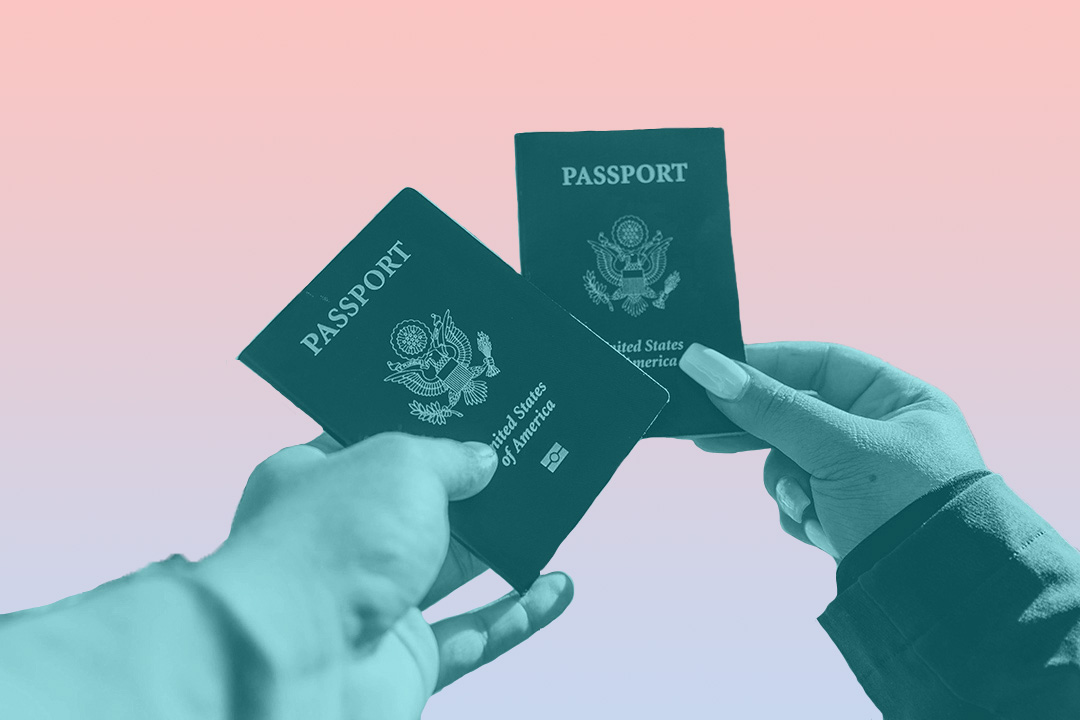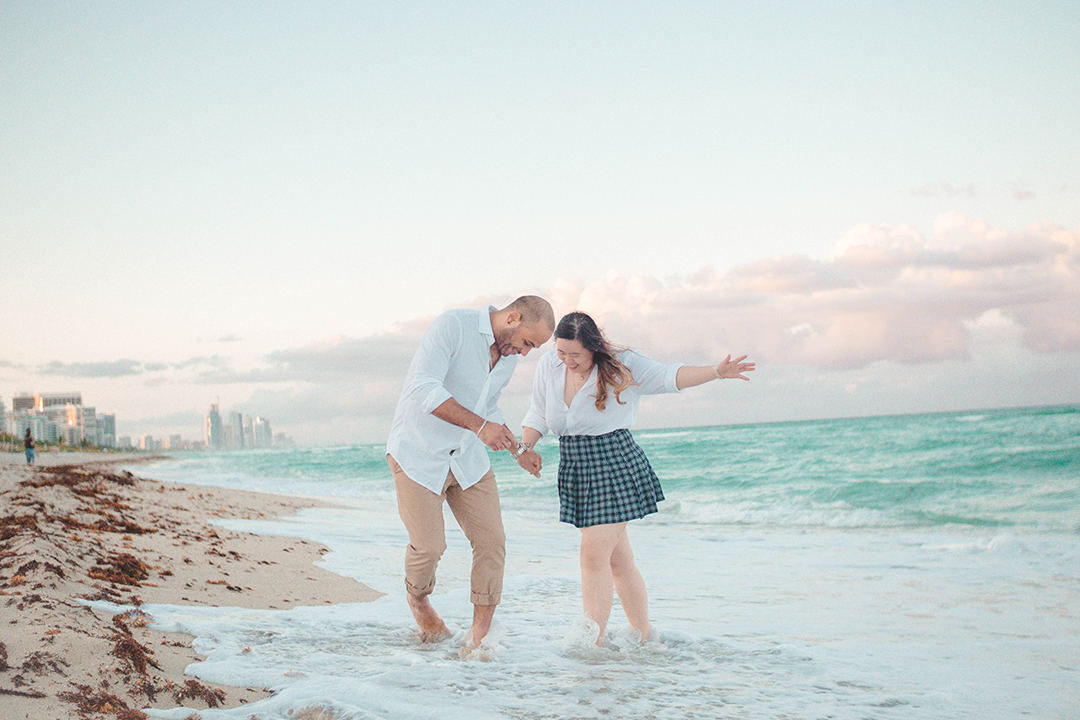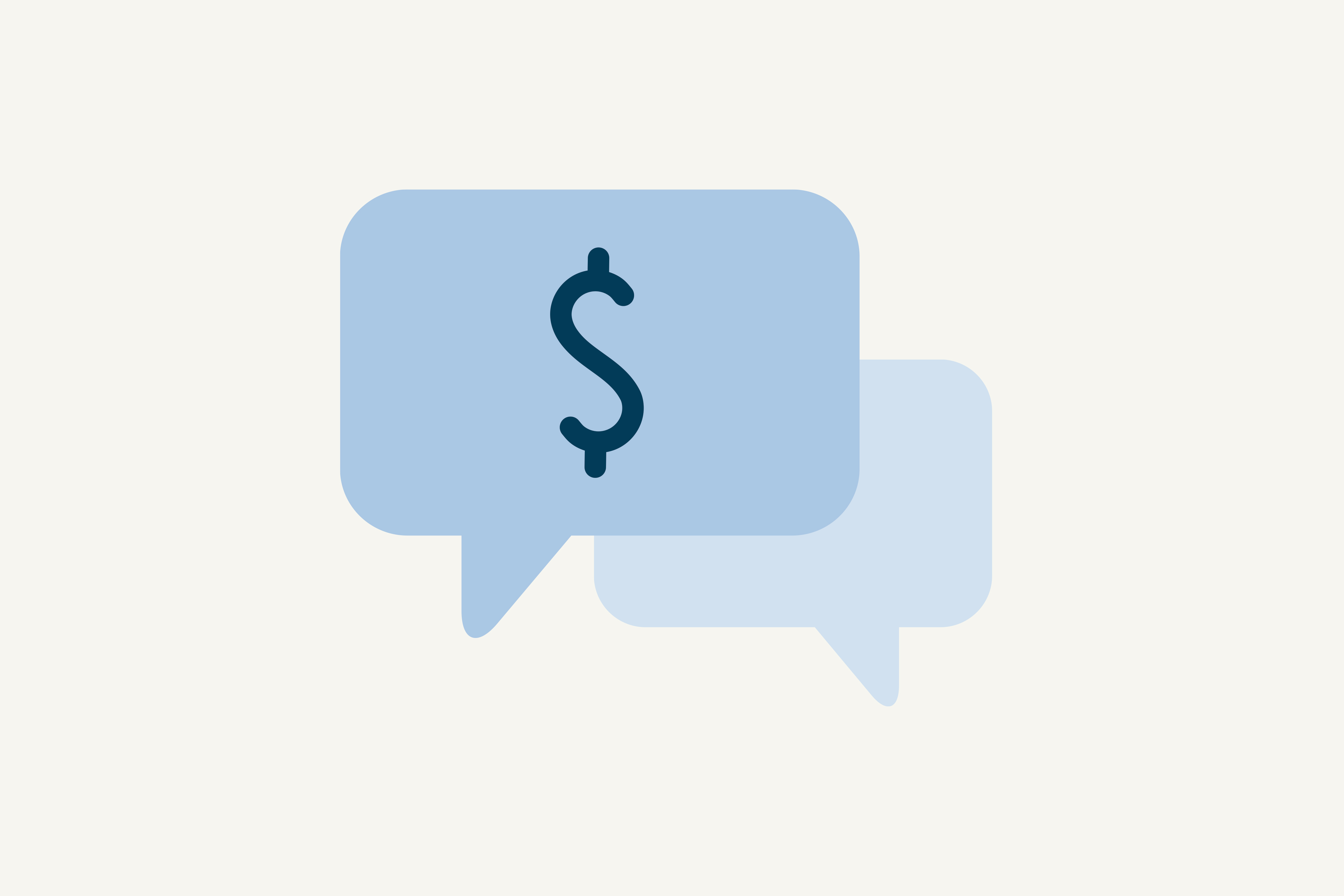- Expert advice/
- Honeymoons/
- Honeymoon planning/
- Average Honeymoon Cost: Breakdown & Smart Budgeting Tips
- Honeymoon planning
Average Honeymoon Cost: Breakdown & Smart Budgeting Tips
Average honeymoon cost is $5,300 per couple; see how destination, trip length, and season shape your spending and get planning tips to stay within budget.
Last updated September 24, 2025

- Honeymoon costs average $5,300 but range widely from $3,000-$8,000 depending on your destination, travel style, and trip length, with accommodations typically eating up the biggest chunk of your budget at 35-50% of total costs.
- Your destination choice has the biggest impact on expenses: domestic beach trips run $3,000-$5,000, Caribbean all-inclusives cost $4,000-$8,000, while European cities and luxury international destinations can easily hit $5,000-$15,000+.
- Smart planning can cut costs by 30-40% through off-peak travel timing, advance booking discounts, honeymoon registries that let guests contribute to your trip, and all-inclusive packages that bundle expenses upfront.
- Most couples fund their honeymoon through a mix of personal savings and wedding gifts, with financial experts recommending you keep total costs under 10% of your annual household income to avoid post-wedding financial stress.
Planning your post-wedding getaway involves more financial decisions than many couples initially expect. Your honeymoon budget needs to cover everything from flights and hotels to meals and activities, with costs varying dramatically based on your destination choices and travel style preferences.
Understanding honeymoon expenses helps you make smart decisions about where to spend and where to save. We'll break down the main cost categories, show you what different types of trips actually cost, and share practical ways to fund your dream honeymoon without creating financial stress as newlyweds.
How Much Do Honeymoons Cost?
The average honeymoon costs around $5,300 for couples, though this figure can swing dramatically based on your choices. Most couples spend anywhere from $3,000 to $8,000 on their post-wedding getaway, with the typical trip lasting about seven days. This represents a significant chunk of your wedding expenses, but it's an investment that most couples find worthwhile.
Understanding what goes into this average helps you set realistic expectations for your own trip. Unlike other wedding costs that feel fixed once you make decisions, honeymoon expenses offer flexibility since you control nearly every aspect of the experience. You can splurge on luxury accommodations and save on activities, or vice versa.
The key is knowing where your money goes so you can make smart choices that align with what matters most to you as a couple.
What Goes Into Your Honeymoon Budget?
Your honeymoon budget breaks down into four main expense categories. Each one offers different opportunities to spend more or save more depending on your priorities.
Accommodations
Your lodging will likely eat up the biggest portion of your honeymoon budget, typically accounting for 35-50% of total costs. Hotel prices vary wildly based on location, season, and what amenities you want. A standard hotel room in a popular destination might run $150-300 per night, while luxury resorts can easily hit $500-1,000+ per night.
All-inclusive resorts bundle your room with meals and activities, often providing better value if you plan to spend most of your time at the resort. Vacation rentals offer another option, particularly for longer stays or when you want kitchen access to save on dining costs.
Consider what type of accommodation experience you want:
- Beach resorts: Great for relaxation but can be pricey during peak season
- City hotels: Often cheaper than resorts but meals and activities add up
- Vacation rentals: More space and kitchen access, ideal for longer trips
- Boutique properties: Unique experiences but limited amenities
Transportation and flights
Getting to and from your honeymoon destination usually accounts for 20-35% of your budget. Domestic flights within the United States typically run $300-800 per person, while international flights can range from $800-2,000+ per person depending on where you're going and when you travel.
Don't forget about ground transportation. Airport transfers in resort destinations often cost $50-150 each way. Rental cars might run $30-80 per day plus gas. If you're planning a road trip honeymoon, gas and potential overnight stops replace airfare in your calculations.
Flight costs fluctuate based on several factors:
- Seasonality: Peak travel times cost significantly more
- Booking timing: Prices often rise as departure dates approach
- Route popularity: Direct flights to popular destinations command premium prices
- Day of week: Tuesday and Wednesday departures often cost less
Food and drinks
Dining expenses typically range from 15-30% of your honeymoon budget, with huge variation based on destination and your eating preferences. Beach destinations with casual eateries might average $50-100 per day for meals, while European cities with fine dining could easily reach $150-300+ per day for two people.
All-inclusive packages eliminate meal guesswork by covering most food and drinks upfront. For other trips, research typical restaurant prices at your destination. Decide how many meals you'll eat out versus preparing simple meals if your accommodation has kitchen facilities.
Your dining budget depends on your style:
- Fine dining focused: Budget $100-200+ per meal for special restaurants
- Mix of casual and nice: Plan $30-80 per meal on average
- Local and budget-friendly: Stick to $15-40 per meal
- Making some meals: Can cut food costs by 30-50%
Activities and experiences
Tours, excursions, and entertainment typically account for 10-25% of honeymoon spending. A guided day tour might cost $100-300 per person, while special experiences like private wine tastings or couples spa treatments can range from $200-800+.
Beach destinations often have lower activity costs since many couples enjoy free beach time. Adventure destinations with guided activities tend to cost more but offer unique experiences you can't get elsewhere.
Think about what type of experiences matter most to you. Some couples prefer one or two splurge activities with plenty of relaxation time. Others want to pack their days with unique experiences and cultural immersion.
What Affects Honeymoon Costs?
Several key factors influence your final honeymoon expense. Understanding these helps you make informed decisions about where to allocate your budget.

Location impact
Your destination choice has the biggest effect on costs. Domestic honeymoons generally cost less than international travel due to lower airfare and familiar pricing. Currency exchange rates also play a role. Your dollar stretches further in some countries while others feel expensive due to strong local currencies or high tourism demand.
Seasonal Pricing: Peak season rates can increase costs by 30-50% compared to off-season pricing. Caribbean destinations cost more during winter months when travelers escape cold weather. European cities see premium pricing during summer. Shoulder seasons often offer the best balance of decent weather and reasonable prices.
Trip Duration: Most honeymoons last 5-10 days, with seven days being average. Longer trips naturally increase accommodation and meal costs, but you might find better per-night rates for extended stays at some hotels. Shorter trips can feel rushed but keep costs contained.
Travel Style Preferences: Luxury travelers who prefer five-star accommodations, fine dining, and premium experiences will spend significantly more than couples who mix mid-range hotels with local experiences and casual dining. Your travel style affects every expense category.
How Much Do Honeymoons Cost by Destination?
Different types of destinations come with distinct cost profiles that help you choose based on your budget and preferences.
Domestic beach destinations typically cost $3,000-5,000 total and include places like Hawaii, California, or Florida, but be sure to factor in how far these are from you which could increase airfare. These offer familiar pricing and no currency exchange, though resort areas can still be expensive. You'll save on international airfare but might pay premium prices for accommodations in popular beach towns.
Caribbean All-Inclusive Resorts usually run $4,000-8,000 and provide cost predictability since most expenses are covered upfront. These packages include resort accommodations, meals, drinks, and many activities. The upfront cost seems high, but you'll spend little additional money once you arrive.
European City Tours often cost $5,000-10,000 and involve higher daily expenses due to currency exchange rates and premium tourist pricing. However, these destinations offer incredible cultural experiences, historic sites, and world-class dining that many couples find worth the extra cost.
Adventure Destinations like Costa Rica or New Zealand typically run $4,500-9,000 and include unique costs for guided tours and specialized equipment. These experiences often become the most memorable parts of your honeymoon, with opportunities for activities you can't do elsewhere.
Luxury International Destinations start around $8,000 and can easily reach $15,000+ for premium accommodations, first-class flights, and exclusive experiences. At this level, you're paying for exceptional service, prime locations, and truly memorable experiences.
How to Save on Your Honeymoon
Smart planning can help you enjoy an amazing honeymoon while staying within your budget, letting you focus on celebrating your new marriage instead of stressing about money.
Advance Booking Benefits: Airlines and hotels often offer better rates for advance bookings, particularly for popular destinations and peak travel times. “Couples should start planning the process 6-8 months in advance,” says Rey Alton, travel advisor and honeymoon expert. Many hotels offer early booking discounts or free upgrades for reservations made well in advance.
Strategic Timing Choices: Choosing shoulder or off-season dates can reduce total costs by 30-40%. Research your destination's peak seasons and consider traveling just before or after these periods. You'll get better weather than full off-season but much lower prices than peak times. Even shifting your departure by a week can sometimes save hundreds of dollars.
Package Deal Advantages: Many hotels and resorts offer honeymoon packages that bundle accommodations with perks like champagne, spa treatments, or romantic dinners. These packages often cost less than booking components separately and add special touches to your trip that make it feel more memorable.
Registry Funding Options: Honeymoon registries let wedding guests contribute directly to your travel fund rather than giving traditional gifts. Many couples find this more practical since they often already have household basics from living together before marriage. Guests appreciate knowing exactly how their gift enhances your celebration. Zola offers zero-fee cash funds that you can tailor to your needs.
Activity Booking Strategy: Many tours and attractions offer discounted rates for online bookings compared to booking on-site. Research major activities you want to do and book ahead for both savings and guaranteed availability. Group tours often cost less per person than private experiences but still provide great experiences.
Consider these specific money-saving approaches:
- Off-peak travel: Can reduce costs by 30-40% compared to peak season
- All-inclusive packages: Provide cost certainty and often better value
- Advance booking: Airlines and hotels reward early reservations
- Flexible dates: Being open to different departure dates unlocks better prices
- Local experiences: Authentic activities often cost less than tourist traps
Ways to Pay for Your Honeymoon
Modern couples use various strategies to fund their honeymoon, often combining multiple approaches to make their dream trip affordable without derailing their post-wedding finances.
Building a Dedicated Fund: Start a honeymoon savings account early in your engagement, automatically transferring a set amount each month. This approach spreads costs over time and reduces the financial impact after your wedding when you might be dealing with other new expenses as newlyweds.
Gift Registry Integration: Honeymoon cash funds allow guests to contribute directly to specific trip components like flights, accommodations, or activities. You can create funds for different aspects of your trip, letting guests choose what appeals to them. This approach feels more personal than general cash gifts while serving the same practical purpose.
Credit Card Rewards Maximization: Travel rewards credit cards can significantly reduce flight costs through accumulated points and miles. Some couples strategically use wedding expenses to earn signup bonuses, then apply those rewards to honeymoon travel. Just ensure you can pay off balances quickly to avoid interest charges that negate your savings.
Resort Payment Flexibility: Many hotels and all-inclusive resorts offer payment plans that let you book your trip and pay over several months leading up to departure. This helps with cash flow management, especially if your honeymoon follows soon after your wedding when expenses are concentrated.
Personal Financing Options: For couples who want to honeymoon immediately but need time to pay, personal loans offer fixed payment schedules with predictable monthly costs. Compare interest rates carefully and ensure monthly payments fit comfortably in your post-wedding budget without creating financial stress.
Who traditionally pays for honeymoons has evolved significantly. While the groom's family historically covered honeymoon costs, today most couples fund their own trip through savings, gifts, or a combination of both. Many modern couples view honeymoon planning as their first major financial decision as a married couple.
Average Honeymoon Length and Hidden Costs
Most couples plan honeymoons lasting 5-10 days, with seven days being the sweet spot that balances cost with sufficient time to relax and explore. However, the average honeymoon length doesn't tell the whole story about expenses you might not initially consider.
Hidden honeymoon expenses can add 15-25% to your total budget if you don't plan for them. Consider these often-forgotten expenses:
- Travel insurance: Typically 4-8% of trip cost but provides valuable protection
- Foreign transaction fees: Can add 3% to all international purchases
- Tipping: Budget $5-15 per day per service person in resort destinations
- Incidental charges: Resort fees, parking, phone usage, transportation, and unexpected activities
- Home preparation costs: Pet boarding, house sitting, or additional security measures

Honeymoon Loans and Financing Considerations
When weighing honeymoon financing options, understand that this represents your first major financial decision as a married couple. How you handle funding your honeymoon can set patterns for future financial discussions and decisions.
Honeymoon budgets should align with your overall financial goals as a couple. Consider how honeymoon spending affects other priorities like buying a home, building an emergency fund, or paying down existing debt.
Financial experts suggest keeping total honeymoon expenses under 10% of your annual household income to maintain a healthy financial balance. This guideline ensures you can enjoy your trip without creating long-term financial stress that might overshadow the positive memories you're trying to create.
Start Planning Your Honeymoon Budget
Creating a realistic honeymoon budget starts with honest conversation about your priorities as a couple and how this trip fits into your overall financial picture. The costs we've discussed represent national averages, but your perfect honeymoon might cost significantly more or less depending on what matters most to you.
Think about what you want most from this experience. Some couples prioritize luxury accommodations and fine dining, while others prefer adventure activities and cultural immersion. Neither approach is right or wrong, but clarity about your priorities helps you allocate your honeymoon budget effectively and avoid overspending in areas that don't matter to you.
Planning your honeymoon budget works best when integrated with your overall wedding planning process. Consider how honeymoon expenses fit alongside other wedding costs and post-wedding financial goals. Many couples find that having clear priorities helps them make confident decisions about where to splurge and where to save.
Ready to start planning your honeymoon? Explore honeymoon destinations & top registry adds for your honeymoon right on Zola! Featuring a variety of hotels and experiences chosen by experts (and loved by couples), you’ll find a honeymoon that matches your style and budget.
Honeymoon Budget Questions
Here are answers to specific questions couples frequently ask when planning their honeymoon expenses and making budget decisions.
Is five thousand dollars a reasonable honeymoon budget?
At five thousand dollars, you're spending near the national average for honeymoons, which makes this a reasonable budget that allows for a memorable trip without being extravagant. This amount typically covers a week-long domestic trip with comfortable accommodations and dining, or a shorter international getaway with mid-range hotels.
How much should couples spend on their honeymoon?
Most financial experts recommend spending between 5-10% of your annual household income on your honeymoon, ensuring the trip doesn't create long-term financial stress. The ideal amount depends on your other financial priorities, existing debt levels, and whether you're paying for the wedding yourselves or receiving family financial support.
What defines an expensive honeymoon versus a budget-friendly one?
Expensive honeymoons typically start around ten thousand dollars and can reach twenty thousand or more for luxury international trips with premium accommodations, first-class flights, and exclusive experiences. Budget-friendly honeymoons under three thousand dollars focus on domestic destinations, off-peak timing, and accommodations that prioritize comfort over luxury amenities.
Up next for you

10 Things to Do Before Going on Your Honeymoon
List
Your honeymoon is your big chance to relax and enjoy newlywed life. Get some of this busywork out of the way beforehand. Here's what to do before your honeymoon.

4 Questions to Help You Choose a Beach Honeymoon Destination
Inspiration
Not all beaches are created equal. Find the perfect beach for your honeymoon with these expert-approved questions to ask yourself before you book.

How to Plan a Honeymoon Around Hurricane Season
How-To
Hurricanes aren't so uncommon anymore. Plan your honeymoon around hurricane season with these expert tips.
Featured

10 Things You Should Do as a Newlywed
List
From financial planning and taxes to insurance and legal documents, follow this 10-step list to help you get your newlywed life up and running smoothly in no time.

5 Finance Topics Newlyweds Need to Discuss Post-Wedding
Inspiration
Finances aren't always the most fun to talk about—but they are necessary, especially for newlyweds. Find out what newlywed finance talks to focus on and how to make the money talk feel easier.

Are You Ready For A Joint Bank Account?
Finances
To learn how to save money together for the future, read these expert tips on merging finances with your spending-partner-for-life.

How to Change Your Name After Marriage
How To
Thinking about changing your last name? Here's everything you need to know when considering a name change after marriage. Learn more.
- Expert advice/
- Honeymoons/
- Honeymoon planning/
- Average Honeymoon Cost: Breakdown & Smart Budgeting Tips
Find even more wedding ideas, inspo, tips, and tricks
We’ve got wedding planning advice on everything from save the dates to wedding cakes.